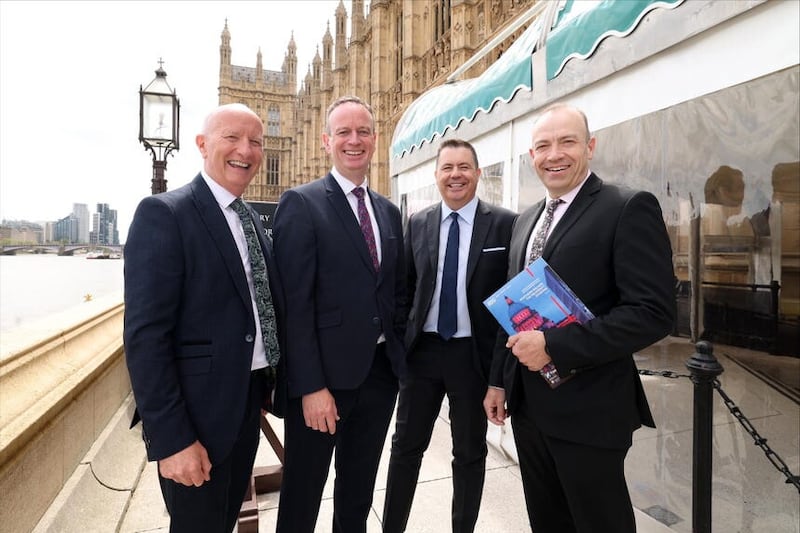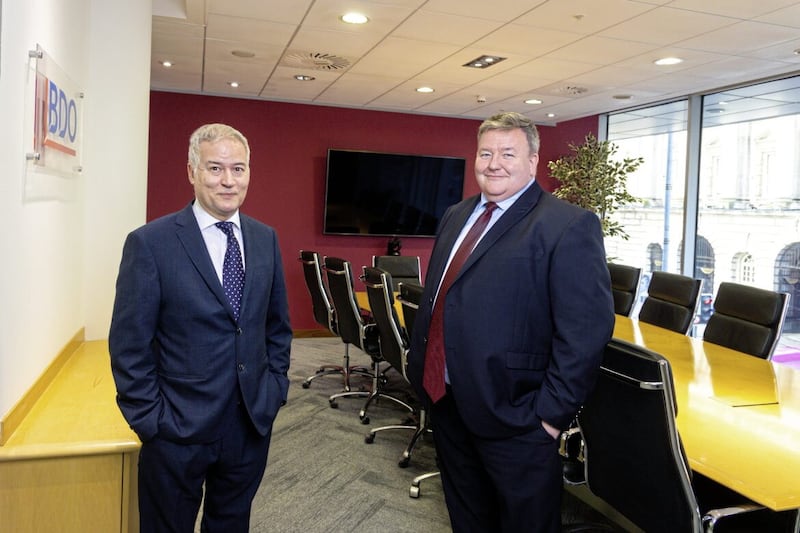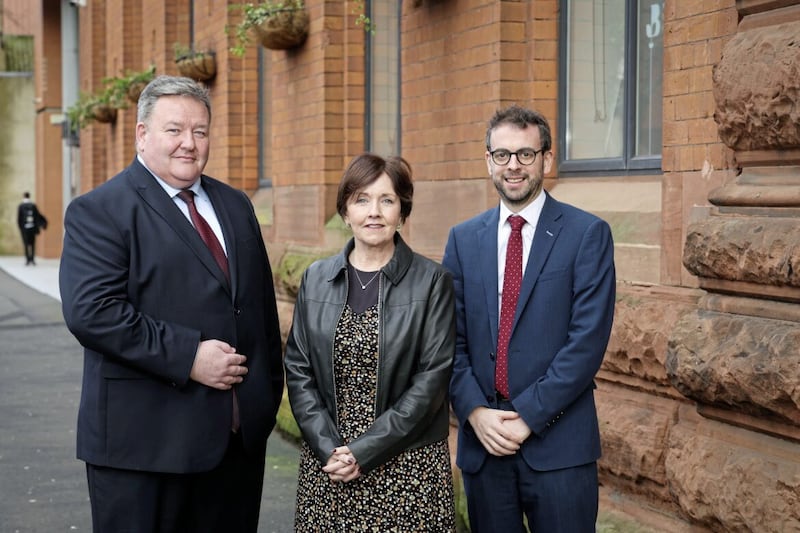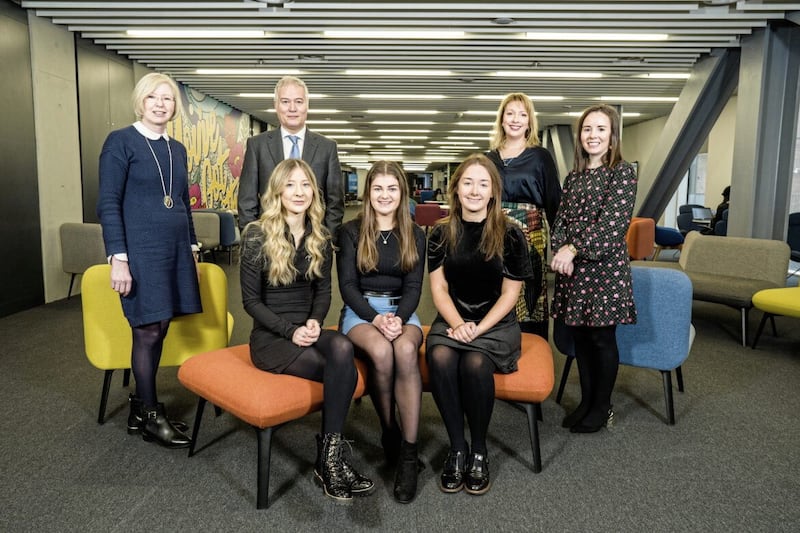The Windsor Framework marks a new era for the economy in Northern Ireland, secretary of state Chris Heaton-Harris has said.
Mr Heaton Harris’ comments came as Trade NI launched an economic paper analysing the economic changes in Northern Ireland since 1998, with recommendations to improve economic growth in the region for the next 10 years.
Several Stormont departments have expressed concerns the public sector will be under pressure due to the budget set by Mr Heaton-Harris in the absence of an executive.
“I welcome the contribution that you all make, that trade in Northern Ireland makes to the new report we’ve got in front of us, to the debate around how best to secure prosperity in Northern Ireland,” he said.
“It’s right actually that we reflect with pride on the Northern Ireland of today, and the journey that it’s undertaken over the last 25 years and reflect on the opportunities that are still to be seized and honestly talk about the challenges that remain.”
He added: “The Northern Ireland of today is truly becoming a byword for cutting edge technology and innovation, and I think we all know that the best is yet to come.
“Northern Ireland’s history of economic innovation and ingenuity gives it every chance to continue to thrive when supported with continued investment by business in its talent and in its infrastructure.
“As the UK government, we are doing our bit to deliver this investment now and in the future.”
Mr Heaton-Harris also said the Windsor Framework “marks a new era” for Northern Ireland.
“As part of the United Kingdom, Northern Ireland businesses will reap the benefits of the new free trade agreements across the globe, as well as the UK regulatory system for trade in services. But its goods can still be traded across that border,” he said.
The Windsor Framework is the UK government’s attempt to tackle problems with post-Brexit trading arrangements, as unionist parties said previous arrangements created an internal border in UK trade.
The Windsor Framework uses a lane-based system to decrease checks on goods coming from the mainland UK to Northern Ireland that will not be entering the EU single market through the Republic of Ireland.
Trade NI, an alliance of three of Northern Ireland’s largest trade bodies – Hospitality Ulster, Manufacturing Northern Ireland, and Retail Northern Ireland – launched the paper to a reception of over 200 business leaders, senior cabinet ministers, over 65 embassies, 80 MPs, and policy makers at an event at Westminster on Tuesday.
Recommendations from the paper include establishing Northern Ireland as a pilot area for a “Skills Tax Credit” scheme to rapidly skill up industries and establish a new funding stream for public and private sector training, more investment in further education to increase the number of university places and stop the “brain drain” and public sector reform to reverse the region’s dependency on this sector and to capitalise on the potential of the current public sector workforce across the private sector instead.
The paper also advises capitalising on Northern Ireland’s unique dual-market access trading position, as well as overhauling the planning process to enable large scale infrastructure projects.
Alliance deputy leader Stephen Farry, who also spoke at the event in Westminster, said Northern Ireland could benefit from the economic success of the Republic of Ireland.
“We need to fully take advantage of the opportunities that are out there for us, and we are privileged to be part of both the UK market, and also that wider European market and also the all-island dimension within that specifically,” he said.
“And as we see the Irish economy, shall we say overheating, we are there to facilitate and help and take a slice of that back here.”
Mr Farry also reiterated the call for a return of Stormont to support economic growth in Northern Ireland.
“But obviously, we need to resolve the remaining issues with the Windsor Framework, we need to ensure that we take full advantage of the job market access that’s available to us under that,” he said.
“And of course, it goes without saying we need to get a government back in Northern Ireland to make sure that the government locally is supporting the economic actors that are out there.”
Following the event at Westminster, Irish ambassador to the UK Martin Fraser hosted an event at the Irish Embassy in London alongside business leaders Ian Luney,the chief development officer of Foyle Port, and Julie Galbrath, partner at DWF Group.








